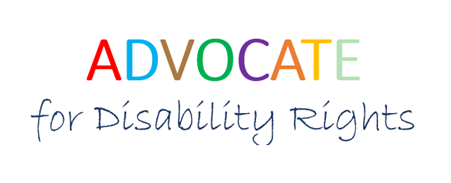 Why a learning trajectory on advocacy?
Why a learning trajectory on advocacy?
Nowadays it is widely recognised that for improving the life of children and youth with a disability and creating sustainable change, we need inclusive societies where physical, attitudinal and institutional barriers are lifted. At this point advocacy comes in: inclusive development is the responsibility of the whole society (communities, authorities, the parents, government, etc.). Through advocacy we work on awareness raising on the rights of children with a disability, we claim good policies and their implementation and stand up for equal rights of people with a disability.

In 2015, Liliane Foundation decided to make advocacy one of its priorities and started a learning trajectory on advocacy in the field of disability with the support of the African Studies Centre Leiden. This 4-years trajectory, called Breaking Down Barriers (www.barriersfree.org), aims to identify the success factors of advocacy for children with disabilities based on research in Cameroon, Sierra Leone and Zambia.
Parallel, Enablement (www.enablement.nl) was asked to help develop a module on advocacy for disability rights. This module has been piloted in two trainings: in Tanzania (2016) and Cameroon (2017). After both of these experiences and analysing the needs of these SPO’s, the present trajectory was developed. Herewith Liliane Foundation would like to contribute to strengthen the SPO’s capacity in the advocacy field.
What will be taught during this learning trajectory?
This learning trajectory has been specially designed for Strategic Partner Organisations of the Liliane Foundation.
After finalising the learning trajectory SPO’s are able to do their advocacy following the ADVOCATE methodology:
|
Assess the situation:
|
Getting an in-depth insight into the real life barriers that people, children and/or youth with a disability encounter in a specific field.
|
|
Define the problems:
|
The multitude and complexity of the assessed situation require a solid problem analysis in order to determine priorities for advocacy.
|
|
Value the power of stakeholders:
|
Be aware of one’s own power, knowing how to increase it, create or join alliances and develop appropriate strategies to deal with those stakeholders that may not be on the same side.
|
|
Opportunities and rights at stake:
|
Make a review of the legal framework and the institutional set up for decision making by government.
|
|
Choosing objectives:
|
Define Specific, Measurable, Achievable, Realistic and Time-bound objectives for your advocacy.
|
|
Advocacy strategies:
|
Make a motivated choice of complementary strategies for effective advocacy.
|
|
Track progress:
|
Monitor the process, the planning and the collaboration. Advocacy needs flexibility: make adjustments when needed.
|
|
Evaluate:
|
Evaluate which lessons can be learned on the process and the results, even in cases of failure.
|
How does this learning trajectory unroll?
This trajectory is not just another training, but a trajectory in which the application of the newly acquired knowledge and skills is key.
The different steps of the trajectory are:
1 - Online training (5 weeks): the first four steps of the ADVOCATE will be dealt with via our Connect platform
2 - Face-to-face training (4-5 days): this training ends with the formulation of an advocacy plan, to integrate in the annual plan
3 - Online follow-up (4 weeks): focusing on advocacy strategies, monitoring and evaluation, via our Connect platform
4 - Implementation phase with coaching (1 year): through exchange and virtual meetings
5 - Learning event to present best practices and lessons learnt
Although only a few people per organisation can be assigned to the learning trajectory, the participation of other people in the organisation in assignments and reflections is of utmost importance as advocacy is not an individual matter, but has to be carried by the whole organisation.
Where are we now?
As of October 2018, a first group of five African SPO’s started the trajectory with five weeks of online learning, followed by a face-to-face training in Kampala, Uganda. During the year 2019, the participants continued the planning and implementation of their advocacy plans. In 2020, the final learning session will be organised. In that same year, the learning trajectory will be evaluated and extended to other SPO’s in Africa and Asia. Please let us know if you are interested in engaging in the 2020 learning trajectory by sending an email to elearning@lilianefonds.nl .